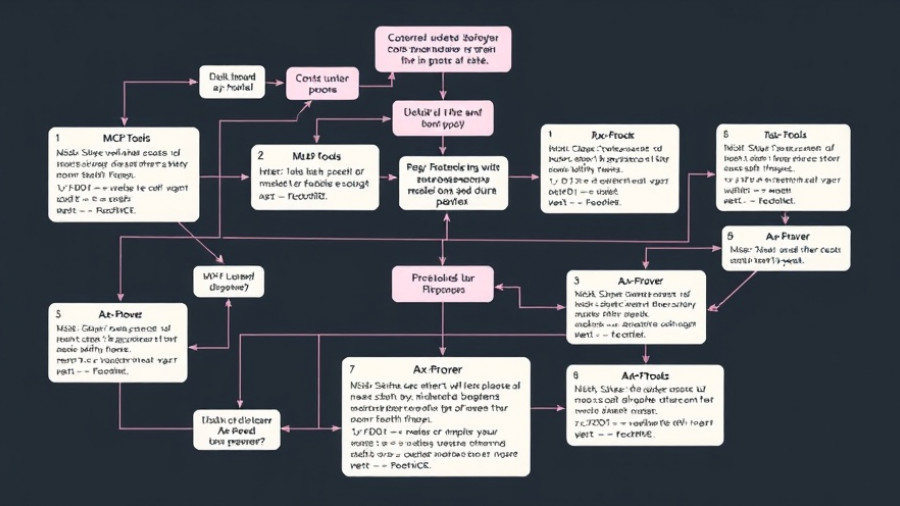
Claude 3.7 Sonnet: The Next Leap in Deep Reasoning AI
In an era where artificial intelligence (AI) is reshaping how we interact with technology, the unveiling of Claude 3.7 Sonnet proudly stands as a groundbreaking advancement. Released in February 2025, this intelligent model is not just another iteration of AI; it embodies a hybrid reasoning capability that combines speed with depth of thought, redefining user interaction through its two modes: standard and extended thinking.
Understanding Claude 3.7 Sonnet's Core Innovations
What sets Claude 3.7 Sonnet apart from its predecessors is its ability to toggle between producing quick answers and engaging in profound problem-solving. While traditional models might operate on a binary system — delivering either instant responses or thorough analysis — Claude allows users to navigate this spectrum fluidly, reminiscent of human cognitive processes. In its standard mode, the model offers an enhanced version of Claude 3.5, but when switched to extended thinking mode, it embarks on thorough reasoning, thus facilitating performance boosts across various applications.
AI's Evolving Role in Coding and Development
The latest model also heralds improvements in coding capabilities, positioning itself as a game-changer for software developers. Extensive testing from Cursor, Cognition, and Vercel showcased Claude’s prowess in managing complex codebases, planning updates, and generating coherent, production-ready code. This makes Claude 3.7 Sonnet an indispensable tool in the developer toolkit, significantly easing workflows from backend functionalities to front-end developments. The effective use of the command line tool, Claude Code, further strengthens its reputation in AI-assisted coding, enabling developers to execute complex tasks directly from their terminal with ease.
Why Hybrid Reasoning Matters in AI
Hybrid reasoning signifies more than a mere technological advancement; it reveals a deeper philosophical understanding of how humans reason through problems and make decisions. Unlike models that compartmentalize quick thinking and deep reasoning, Claude 3.7 Sonnet adopts a unified approach, allowing for seamless transitions between the two. This capability opens new avenues for user engagement — as businesses can leverage AI’s extended reasoning abilities to generate informed, nuanced responses to customer queries or complex scenarios.
Comparative Performance and Implications for Businesses
Claude 3.7 Sonnet's performance was rigorously benchmarked against previous models and competitors, demonstrating its superior capabilities. With industry-leading results on SWE-bench Verified, where it achieved a remarkable 70.3% score, it's evident that Claude’s optimization reflects the needs of real-world applications. Business sectors, including healthcare and finance, can particularly benefit from the model’s ability to analyze data, streamline communications, and enhance decision-making processes through advanced reasoning.
Future Predictions: Is the Rise of AI Deep Reasoning Upon Us?
The continuous evolution of AI models like Claude 3.7 Sonnet indicates a future where AI deeply intertwined with human workflows ultimately enhances productivity across various sectors. The demand for nuanced understanding in customer service, coding, and even medical diagnosis is escalating. With deep reasoning capabilities that Claude offers, businesses might find AI moving from simple task automation to becoming an integral partner in strategic decision-making.
Conclusion: Embracing the Deep Reasoning Revolution
As we stand on the brink of an AI revolution, understanding tools such as Claude 3.7 Sonnet becomes critical. This model represents more than just software improvements; it embodies the next phase in deep reasoning AI, pushing boundaries and reshaping perceptions about what AI can achieve. For businesses and developers alike, mastering this technology can lead to innovative applications and enhanced efficiencies.
For those eager to dive deeper into the world of AI and its implications, there’s no better time to explore how hybrid reasoning can revolutionize your workflows. Those interested in harnessing the full capabilities of Claude 3.7 Sonnet are encouraged to engage with this technology, exploring its full potential in shaping tomorrow’s solutions.
 Add Row
Add Row  Add
Add 




Write A Comment